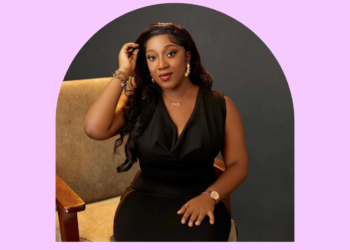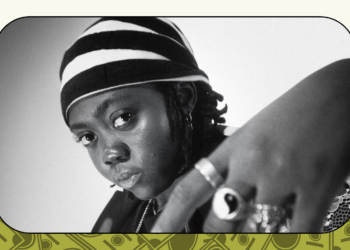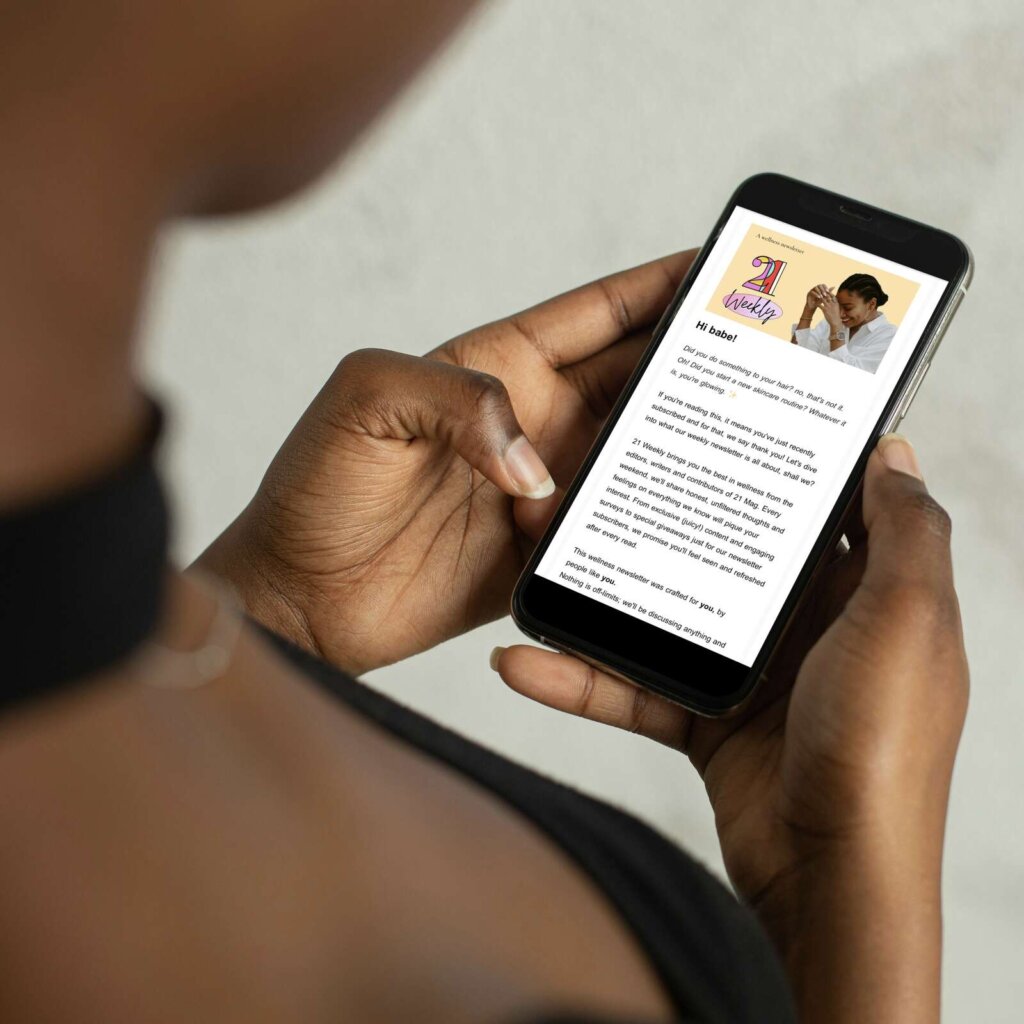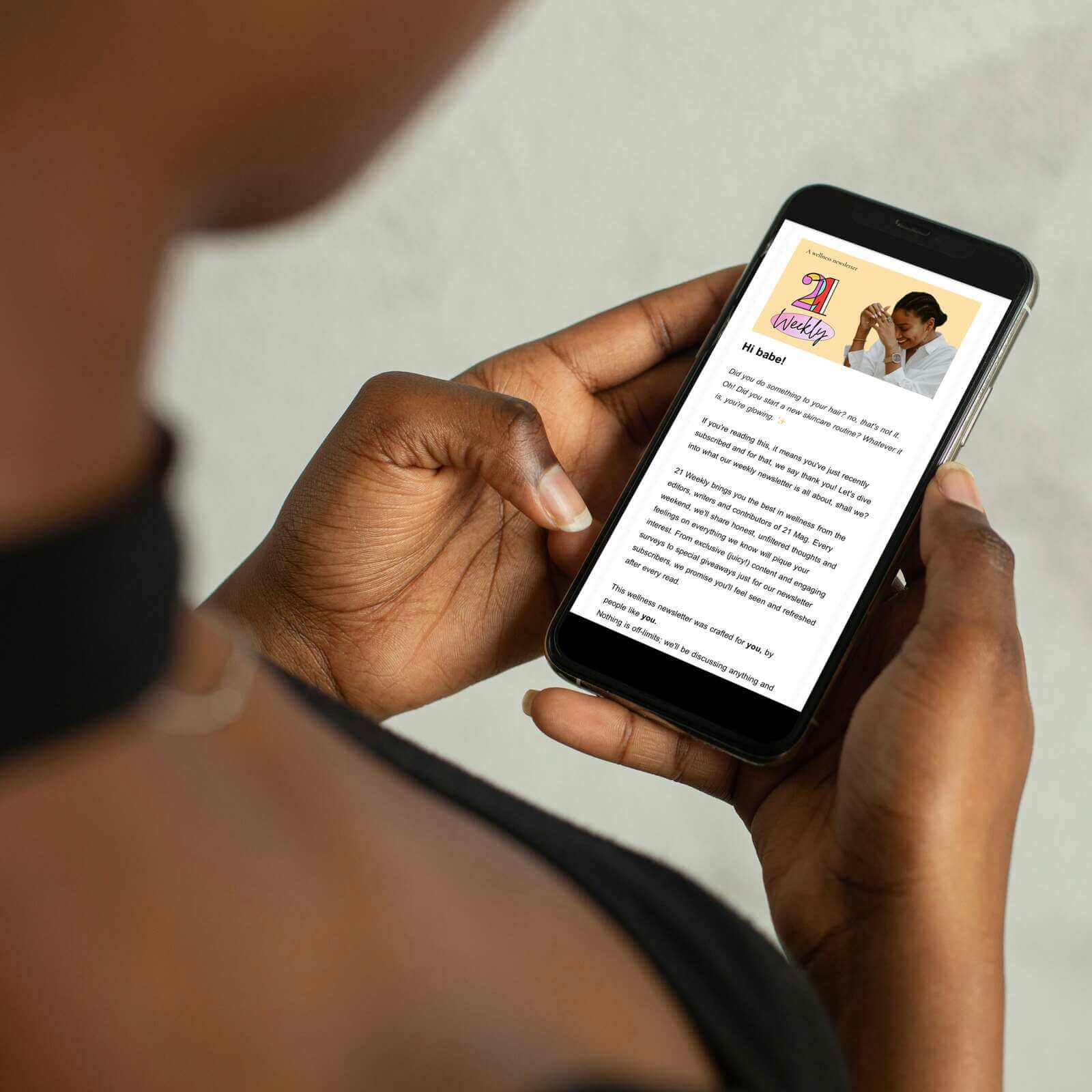No products in the cart.
Herstory: Amanda Iheme On Founding Ndidi
Herstory: Nigerian Women Founders is a 21 Magazine original series launched in March 2024 as a tribute to Women’s History Month. This captivating series delves into profound interviews with Nigerian women who have fearlessly founded brands and companies within the dynamic landscape of our economy. Through compelling narratives and insightful conversations, we illuminate the remarkable journeys, challenges overcome, and triumphant successes of these visionary leaders. Join us as we showcase the resilience, innovation, and impact of Nigerian women in shaping our shared future.
Ndidi, founded in 2017, is a private mental healthcare practice committed to providing accessible, high-quality mental healthcare in Nigeria.
For our Herstory series, I spoke to the friendly, warm and brilliant founder and lead clinical psychologist of Ndidi, Amanda Iheme. In a conversation filled with insights on mental health care in Nigeria and punctuated with humour from Amanda, we spoke about how she entered into the field of psychology, what it means to efficiently run a mental health practice in Nigeria and what women who are struggling with mental health issues but are hesitant to seek help need to hear.
Keep reading to dive into our insightful conversation!

What is Your Name and What 3 Words Would You Use to Describe Yourself?
My name is Amanda Iheme and I would describe myself as warm, resilient and kind.
Can You Share a Bit About the Journey that Led You to be a Psychologist?
It started in secondary school. A classmate of mine died from a brain tumour, and it made me want to be a neurosurgeon. The plan was for me to go to med school at the University of Ibadan, but my father didn’t think financial success as a doctor was possible in Nigeria because doctors don’t get paid well here. He encouraged me to try for something else. He gave me a brochure of a school in Ukraine and I remember reading about Psychology as a course and finding it interesting. So I told him I was going to study psychology instead of medicine.
I ended up at the University of Cape Coast and after 4 years, I got a bachelor’s degree in Psychology. After that, I did my NYSC and got a Master’s Degree in Abnormal and Clinical Psychology from Swansea University, Wales. During my time as a corper, I worked as a radio presenter at Beach FM and as a school counsellor at Command Day Secondary School, Ibadan.
After my MSC, in 2015, I came back home and started from scratch all over again. I worked at several organisations, the last one being Alara. After working there for some time, while volunteering at Stand to End Rape, I had a moment where I was being very reflective about wanting to put my degree to use. I also had a lot of personal things happening in my life at that time. I decided to quit my job at Alara and start a new practice in 2017.
Are There Any Specific Challenges You’ve Encountered in Providing Mental Health Support in Nigeria, Especially as a Woman, and How Have You Addressed Them?
I don’t really think much about me being a woman hinders me from being able to do things. The only times when I think things are a tad bit more difficult because “I’m a woman”, is if a man starts making sexual advances towards me.
My femininity and womanhood have not worked against me in my practice and I think that also has to do with the mental health industry being a care industry. You get to see a lot more women than men in these spaces, so you don’t have to deal too much with the gender bias women face in male-dominated industries. I guess it also helps that I own my business. It limits the kind of rubbish I am exposed to.
As for the challenges I face, there are more structural issues that have to do with Nigeria as a whole. Issues like financing; being able to receive and send international payments and following up with clients who don’t want to pay. There was also the issue of the mental health bill not being passed and people with mental health conditions not having any legal power, but that was resolved in 2023 when the bill was finally passed. Then there are bad internet days as well.
Additionally, I have to juggle two jobs. So I’m the lead clinical psychologist and the clinical director of the practice. This means I would see clients and treat illnesses and at the same time, it’s my business to grow the practice.
Can You Share Some Success Stories or Impactful Moments from Ndidi that Highlight the Positive Impact of Mental Health Care on Individuals and Communities?
The fact that Ndidi, since 2017, still exists and impacts lives today is a success to me. The fact that we are effectively healing people and solving their problems and that our clients will refer others to get care from us because they know that we gave them a good and quality standard of care is another success for me. When I’m outside and someone walks up to tell me that they know someone I helped or when I see comments on Ndidi’s YouTube and feedback from clients, is a huge thing to me.
Also, my staff; just hearing them say that they love working with Ndidi is the definition of success to me. Part of the reason why I decided to start my own practice is because I noticed that a lot of work environments are not mentally healthy. I believe people should have a balanced life and that their work is only just a part of their life and not the whole thing. While I believe in profit making, I also believe that employees need to enjoy where they are coming to work, because that’s going to make them want to work harder. So, being able to create an environment for my staff to grow, give them a living wage, and see them develop over the years in several aspects of their lives, is significant to me.
What’s Your Favorite Thing About Being a Psychologist?
The healing aspect of it. When people come to have their first session, and I just listen to them talk about challenges that they have that seem insurmountable and then over the course of our conversations that happen over a period of time, I gradually get to see the person shift their life in a different direction. When I then look back at when they came in, and where they are, and notice all the changes that have happened over the years, I get amazed. Transforming someone’s life for the better is one of the most fulfilling things about the job.
What Advice Do You Have for Other Women Looking to Pursue a Career in Mental Health Advocacy or Practice in Nigeria?
Do it because you really want to do it because this job is not for the faint-hearted. Do it because you actually have a calling to help people and you genuinely care about them. A huge part of your job is empathy so you will have to put yourself in situations you have never experienced first-hand. If you don’t care about the well-being of people, it’s going to affect how good of a therapist you can be.
What Five Tips Can You Give Women Looking to Start a Business in Nigeria?
Are You Sure?
You need to be sure about why you’re starting a business. Sit down and answer questions like: Why are you doing this? What is the mission of your business? What is the vision? What are its values? And what is the aim? Your answers need to be meaningful because there are times you will need to make certain business decisions and, consider if your decision aligns with the vision of your business. If it doesn’t, you will be running into a problem, because, where you started and where you are going will be misaligned.
Do Your Research
Speak to people who are already doing the business you’re doing, so that you can find out where you fit in. The last thing you want to do is provide a service that already exists. For me, what didn’t exist was the way I was providing the service: something that most people felt was beautiful. No places were offering mental health care that felt beautiful. They all mostly looked dusty, musty and busted, and I’m not only talking about the physical space but also the branding. You wouldn’t even feel inclined to want them to help you because the spaces weren’t aesthetically pleasing. So that became really important to me. I also couldn’t find a place with a mentally healthy work environment that was warm and accepting. I identified the gaps that I wanted to fill and created a mental health practice that I would want to go to.
Have a Group of Good Advisers or Mentors, and Rely on Your Team
Ndidi’s existence today is not by my power and might alone. Everyone that I have worked with over the years, including my Board of Directors, has been instrumental in the growth of the business. They push me in directions I have not been comfortable going to, open up my eyes to new perspectives, and help me make the right decisions for the business.
Take Your Finances Seriously From Day One
Don’t think because Nigeria is fucked up that there are no laws in the land, there are. And if you play with your finances, in terms of not paying the bills and taxes you’re obligated to pay, the authorities will come for you when you least expect it. Get a good accounting team that will advise you right. Get a good lawyer as well.
When You’re Starting Your Business, Know that You’re Going to Wear so Many Caps
You’re going to be the business administrator, social manager, graphic designer and so on. However, as you grow, shed the load. If you don’t make rest a part of your structure right from the inception of the business, it will be challenging to infuse it into your structure later on, because then you would have built a system where people will need to slave and break their backs to be the best versions of themselves. So, think about how you incorporate breaks at work, how you let employees take leaves, and how you prioritise their mental health. Rest is an important part of productivity. I don’t believe that I can get the best out of my team when they are tired, overworked and overwhelmed.
What Advice Do You Have for Women in Nigeria Who May Be Struggling with Mental Health Issues but are Hesitant to Seek Help or Can’t Afford to?
The hesitancy to seek help stems from a place of ignorance and ignorance is not a bad thing, it just means you don’t know. I encourage you to own your ignorance, but don’t let it paralyse you. Go online and utilize internet resources to not only feel better but also understand what the mental health care experience is like.
You can additionally, give yourself an actual experience of what therapy can be like. Just start with a consultation session. Ndidi has one, and we created it because we know not everyone wants to dive into therapy straight, some people need to dip their toes in the water to see if it’s for them. So start small. You can even join support groups that offer you the opportunity to talk about your emotions, online or offline. Some NGOs offer support group services, like Mentally Aware, Psych Babble, Assert, and Sunshine Series. Sometimes, it’s free.
Some therapists also offer discounts as well. Talk to your therapist and they might offer you a discount, ask you to pay installmentally or even refer you to another therapist who is just as good, but costs less for several reasons. In our practice, we have packages for professional artists which are way cheaper than what they’ll cost regular clients. Usually, 3 sessions will cost you 140,000 naira, but artists pay 60,000. As a student, you pay 45,000 for 3 sessions.
What are Some of the Most Prevalent Mental Health Issues You’ve Observed Among Women in Nigeria?
Although I’ve not assessed our female clients, I would say number one is anxiety disorders. Lots of women also come in trying to have clarity about decisions they want to make; clarity about friendships, romantic relationships, and about themselves and their emotions. There are also depression and body image issues, irrespective of their size. Lastly, black tax, and not just financial, but the emotional one as well.
How Does Ndidi Integrate Culturally Relevant and Holistic Approaches into Mental Health Care, Considering Nigeria’s Diverse Cultural and Social Contexts?
From the very beginning, our clients fill out a registration form that enables us to get an idea of who they are as a person. This bio-data helps us know what we need to be aware of if we are providing them with care. During therapy sessions as well, there is space to talk about things that are specific to your culture, sexuality, gender or religious beliefs and how that impacts your well-being. In addition, we ensure and train therapists to know that discrimination is not allowed. We try as much as possible to broaden our minds, especially through trainings to help open up our understanding of how people react to different situations.
In cases where there’s a client who has a trait that needs a specific kind of care beyond our expertise, we will refer them. However, I noticed even though Nigeria is culturally diverse, the challenges that people bring in, are usually similar across all cultures, maybe just from different angles.
What are Your Future Goals and Aspirations for Ndidi in Terms of Expanding Services, Reaching More People, and Creating a Lasting Impact in the Mental Health Care Sector?
Currently, we are primarily virtual. I want us to have our own space. My biggest dream is that Ndidi is not just a hospital but a centre that provides psychological, psychiatric and physical health care, as well as a place where we can provide training to people who want to be counsellors, psychologists or therapists. I want Ndidi to also be a research and development space where we can study human behaviour that’s peculiar to Nigeria rather than making decisions based on research that has been published in the UK or US, to understand Nigerians.















